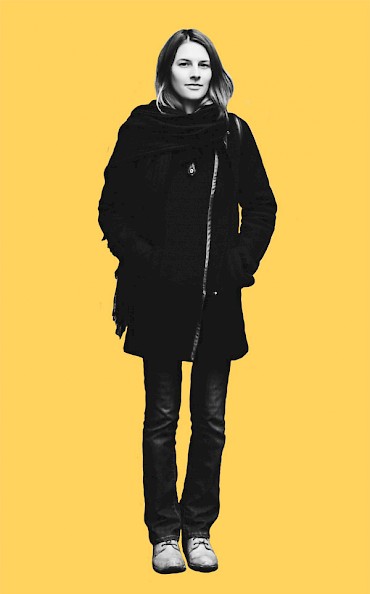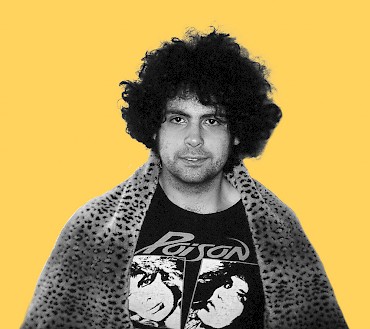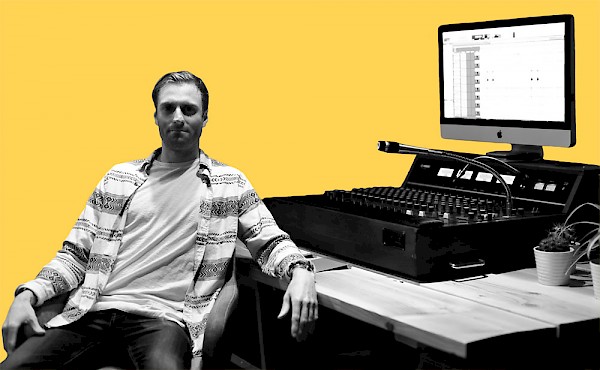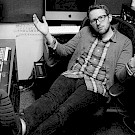 Photo by Ken Aaron
Photo by Ken Aaron
Portland as an artistic Wild West is at a crossroads.
Terrifying topographical changes are threatening to topple the grisly visage of long-standing countercultural epicenters. Five-dollar shows are sparsely attended while big-ticket touring acts seem to maintain steady sold-out stops through the city. Bands that would seem to represent Portland (in whatever way a locale could be represented) don’t even play in town.
Why?
Portland has one of the top 15 fastest growing populations in the United States, and is taking on more goddamn musicians than were previously thought to exist in the entirety of the I-5 corridor. It’s an easy equation to deduce:
Surplus of venues + surplus of artists + burgeoning indie label scene + national recognition as a hub of cool = Let’s move our band to Portland and be baristas
It’s a cliché that’s been foisted upon the American public thanks to that TV show, but there’s more to it. Any artist living in the Portland metro area during these times is supremely lucky. Not only are there copious venues for up-and-coming bands to perform at, but you can also get local radio play pretty easily. You’re an email from public relations support, boutique cassette labels, strong engineers, great local press and, of course, you’re nestled in the cradle of a venerable Pacific Northwest tradition of DIY that resonates throughout the country, if not the world, even if you don’t DIY.
It must be asked, though: Can a band really make it big in Portland? What does that even mean anymore? What advantages or disadvantages are there simply by virtue of claiming your headquarters in the Rose City?
 Robin Bacior, musician: Photo by Kim Smith-MillerRobin Bacior moved from Brooklyn to Portland in 2012. After releasing an EP and full-length on her own label, she arrived with no real plans to continue with music.
Robin Bacior, musician: Photo by Kim Smith-MillerRobin Bacior moved from Brooklyn to Portland in 2012. After releasing an EP and full-length on her own label, she arrived with no real plans to continue with music.
“Portland’s such a gentle environment, and I found it really easy to concentrate and write,” Bacior explains. “Things fell into place, so I let go of some restricting ideas I had about how I was supposed to ‘make it.’”
In the time since, Bacior has garnered a respectable amount of press, self-released two LPs, and managed to extend her name recognition beyond the city limits through both the tested means of PR campaigns, as well as through the mettle of her own self-promotional gusto. While Portland may be a nurturing home base, it’s not necessarily the launching pad that aspiring maestros might think.
“I get really irritated by that kind of mentality, of using your home base as edge,” Bacior says. “It seems arbitrary because it’s not sonic; it says nothing about what you sound like, only that you eat and sleep in the same town with other musicians. Your work talks—let that speak for you.”
Should you be so ambitious or confident as to seek to further the reach of your music, you’ll have to play the game. Your work, while certainly the crux of your creative juices, exists either as a personally fulfilling artistic dump never needing the light of notoriety to justify it, or as a statement of cultural significance that demands attention. For the latter, you must weigh expectations based on which steps work and which probably won’t. So what works and what doesn’t?
“People in the Pacific Northwest underestimate how important PR is because everyone here feigns indifference even though they actually want to be famous,” says Mo Troper, a musician and co-founder of Portland indie label Good Cheer Records.
As Troper relates, PR can be helpful, even if it’s just sending out emails to local press about your own band. And touring to get your name out is absolutely essential.
 Mo Troper, Good Cheer Records co-founder: Photo by Samantha Sutcliffe“I don’t buy the argument that the internet has made touring obsolete—it’s still really critical if you want anyone outside of your hometown to care about your band or buy your records,” Troper says.
Mo Troper, Good Cheer Records co-founder: Photo by Samantha Sutcliffe“I don’t buy the argument that the internet has made touring obsolete—it’s still really critical if you want anyone outside of your hometown to care about your band or buy your records,” Troper says.
Although it might not be a practical avenue for every band or musician, in a society dominated by the ease of streaming services, pirating and file-sharing—your toil broken down into megabytes—the visceral human experience of live music still reigns supreme.
“My biggest expectation [as a label head] is that bands tour to promote their releases,” Troper says. “If a band has no idea how to book a DIY tour, I’m probably not interested in working with them.”
On the flipside is professional PR help from publicists with national press contacts ranging from the editors of tastemaking publications like Pitchfork down to small college papers.
“Some bands believe that press alone will forge the way for opportunity, but in most cases, it’s just one part of the process,” explains Annie Ostrowski, a publicist at Riot Act Media.
In terms of generating buzz, however, PR isn’t an ironclad solution.
“PR is not cheap and doesn’t exactly make any promises, so it becomes a pretty difficult thing for a lot of bands to justify spending the money on,” explains Jeff Bond, a recording engineer and musician.
“The amount of work you put in isn’t always proportional to the results you see,” Ostrowski explains. “It really does vary based on timing. Press is often a process of laying down the foundation and building from there. Pitchfork might not pick something up, but if you start to generate pieces from regional press and blogs that really care and support what you do, then you will have those contacts and outlets to build on with each release.”
Whether or not your being based in Portland translates to increased attendance elsewhere is extremely relative.
 Jeff Bond, recording engineer: Photo by Daniel Jacob“The bar is getting set higher and there is more ambition amongst [local] bands to go beyond Portland,” Bond says. “From my experience doing the little bits of touring I’ve done, outsiders definitely view Portland as a cool place with a vibrant music scene, which definitely helps local bands get some level of attention outside of Portland.”
Jeff Bond, recording engineer: Photo by Daniel Jacob“The bar is getting set higher and there is more ambition amongst [local] bands to go beyond Portland,” Bond says. “From my experience doing the little bits of touring I’ve done, outsiders definitely view Portland as a cool place with a vibrant music scene, which definitely helps local bands get some level of attention outside of Portland.”
On the other hand, the phenomenon of hometown anonymity is strong in Portland’s inclusionary scene. To wit, Bacior was tapped as a representative of Portland culture as a musician for an event dubbed the Portland Festival in Tokyo in late 2015. Earlier in 2016, she took her band to Italy for a month-long tour that saw enthusiastic responses based on some of her music being featured in a commercial. Between gigs, the band was shocked to see a large freeway billboard with Bacior’s face on it promoting the previous night’s show.
Typical hometown shows for Bacior, however, are relegated to decidedly tamer fanfare. It’s a small sample size, but an important distinction to make that notoriety outside of Portland can still happen despite being under the radar here.
“There are two types of Portland bands,” Troper explains: “Bands that are extremely popular here but don’t have much of a national following, and the opposite. You look at a band like And And And who, to my knowledge, doesn’t have a huge national following but have this rabid fan base in Portland, and that creates this illusion that they’re like Kings of Leon-famous, locally. And then you have a band like Lee Corey Oswald who never get any coverage in Portland but go on these enormous tours and sell records in bigger cities.”
Occasionally, as Troper points out, the two intersect, as is the case with bands like Typhoon or Red Fang.
“There’s this weird cultural thing in Portland where the city’s arbiters of taste disown you if you’re transparent about your desire to ‘make it,’” Troper continues. “I don’t think that’s specific to music. If you want to stay cool in Portland, you have to constantly nurture an indie cred facade or kill yourself.”
 Photo by Ken AaronIn a scene so welcoming, vibrant, visible and storied as Portland’s, a blueprint for achieving success is decidedly nonexistent. In that way, whether or not you play the promotional game is as important as you want it to be. Whether or not you’ve made it is wholly subjective.
Photo by Ken AaronIn a scene so welcoming, vibrant, visible and storied as Portland’s, a blueprint for achieving success is decidedly nonexistent. In that way, whether or not you play the promotional game is as important as you want it to be. Whether or not you’ve made it is wholly subjective.
For professionals like Bond, making it means being able to pay your bills each month doing what you love. “But furthermore, I consider it to be working on inspiring projects and music that I am truly a fan of,” Bond adds.
“[Making it] always comes down to finding a way to feel I’m progressing, while not missing out on the rest of my life,” Bacior says. “At times when I start to feel shitty about it, I think about why I continue, and for me, it’s nothing I can put into words, only a palpable feeling that lets me be the truest version of myself. To get there can take a lot of work, and sometimes some bullshit, but to be within that is a gift.”
Playing the game can definitely help you get ahead when it comes to promoting your music. The time-honored advantages of solid PR, a great recording, successful tours, and generous press clips speak for themselves. Despite the level of your ambition, however, it’s important to leverage your personal fulfillment from your work against any commercial success you might attain.
Whatever the consensus views on making it might be, in Portland or beyond, the importance of maintaining reasonable perspectives about success is paramount. The point is not to discourage artists from trying to achieve recognition; the point is to allow the quality to progress even while the quantity soars.






